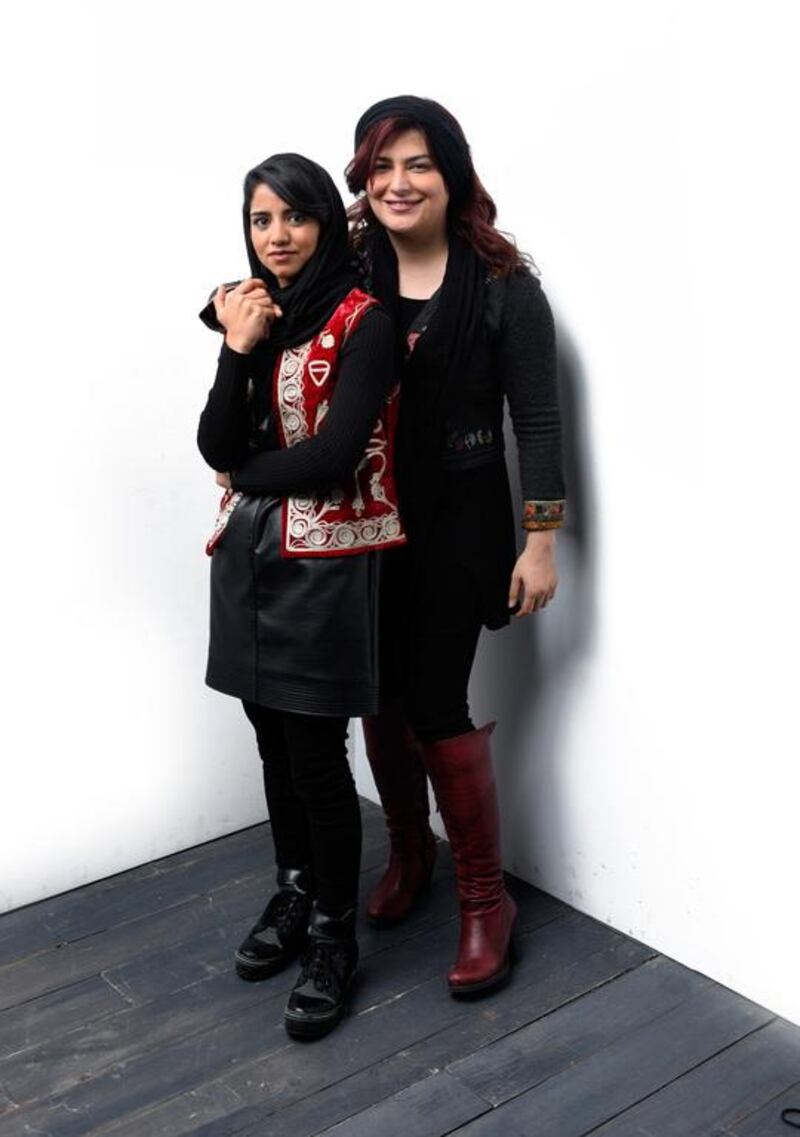Rokhsareh Ghaemmaghami's documentary Sonita tells the remarkable story of an Afghan-born teenager who – despite living as an undocumented refugee in Tehran and facing the threat of being sold into child marriage by her family – is determined to pursue her dream of becoming a rap star.
The film – which won the World Documentary Audience Award and Grand Jury Prize at the Sundance Film Festival in January and will screen at the London Human Rights Watch Film Festival which begins on March 9 – reveals how the Iranian director became increasingly involved in the life of Sonita Alizadeh, a determined, sparky 18-year-old, who makes a risky return to her homeland in an attempt to get the documents that will open the door to an education in the United States.
Ghaemmaghami was introduced to Alizadeh when the director’s cousin, a social worker, asked if she had any contacts who could help the teenager record some of her rap music.
She became fascinated by the youngster’s story and found it tough not to get involved when Alizadeh’s mum decided it was time for her daughter to adhere to the Afghan tradition of being married off for money – about US$9,000 (Dh33,056) – so that her brother could, in turn, buy a bride.
It was the second time Alizadeh had faced being sold – she was intended to marry at 10 years old but that marriage fell through.
Unable to stand by and simply observe, Ghaemmaghami makes a bridging payment of $2,000 to buy Sonita some time.
“I wanted to just let the story happen but at some point the situation became such that I had to help,” says the Tehran-based director.
The film reveals the massive cultural divide between Iran and Afghanistan.
“For us, it’s a huge difference,” says Ghaemmaghami. “In Iran, 65 per cent of university students are women and, for example, there is no question of whether a girl should go to school or not – she should go to school. Sometimes, poor parents can’t afford it but nobody questions it.
“In Afghanistan, it’s a question still – should a girl go to school at all or not? Iran has a lot of problems with women’s rights and human rights, but you cannot compare Iran and Afghanistan in terms of the people’s social development.
“That’s why Alizadeh rebels against her family. I have footage where she says, ‘I was raised in Iran and I can’t live as an Afghan woman in Afghanistan. You cannot sell me’.”
Ghaemmaghami follows with her camera as Alizadeh sets off on a nail-biting journey to Kabul to get a visa that will allow her take up education in Utah in the United States. It is a trip made all the more difficult by the fact that they dare not tell the teenager’s family the truth, in case they decide to marry her off quickly.
“In Afghanistan, and especially in Herat and their community, everyone has been sold, so you cannot expect Sonita’s mum to be a rebel and just say, ‘No, I’m not going to do this’,” says Ghaemmaghami.
“She did what she had always seen. Now they realise there could be another option, so their eyes are open and they don’t think about selling Sonita. They’re proud of her.”
This revealing of alternative options is very important to Alizadeh, who has set herself an even bigger goal than becoming a rap star.
“This year, I’m working on a campaign to end child marriage,” says Ghaemmaghami.
“I have to work first with families and then with girls. I respect some of the traditions in Afghanistan, but I don’t respect this one because I almost was a child bride and it’s terrible – it’s like being a dead person.
“They think they have to sell their daughters because it’s a tradition. My hope is to help them to see new ways and other possibilities for their daughters.
“For the girls, as well, I want to help them realise their dreams and to know that, as a girl, they have power and they can make their own future.”
As for her story being told in the film, Alizadeh says it has helped to give her some perspective. “It has hard moments of my life in it but I’m happy to have this documentary,” she says. “I can see where I was, where I am and where I want to be.”
• Sonita will screen on March 11-12 and March 15 at the London Human Rights Watch Film Festival which runs from today to March 18. For more information, visit ff.hrw.org/london
artslife@thenational.ae





